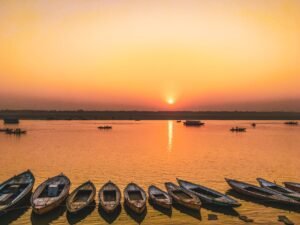Analyzing the Power of the Supreme Court to Grant Special Leave Petition
Written By: Naveen Talawar
Introduction
“Using Article 136 for common matters was like asking a super-specialist doctor for generic medicines,” said Justice Dalvi in one of the interviews.
Special leave petition holds a prime place in the Indian judicial system, as it provides the aggrieved party special permission to be heard in the apex court in an appeal against any order or judgment of any court or tribunal in the territory of India.
The supreme court of India has been given extraordinary jurisdiction under Article 136 of the constitution. By this article, the court can grant special leave to appeal from any judgment, decree, determination, sentence, or order in any cause or matter.
What does Special Leave to Appel means
A special leave petition is a petition seeking special permission(leave) from the supreme court to appeal against a judgment passed in any of the lower courts or tribunals in India. This is a special power that has been conferred upon the supreme court to grant leave to appeal against any judgment in case of any substantial question of constitutional law is involved or gross injustice has been done.
Article 136 of the Constitution
Article 136 of the constitution provides for special leave to appeal by the supreme court; accordingly, clause 1 of Article 136 empowers the Supreme Court to grant, in its discretion, special leave to appeal from any judgment, decree, determination, sentence, or order in any cause or matter passed or made by any court or tribunal in the territory of India and clause (2) excludes from the scope of Art. 136(1) to any judgment, determination, sentence or order passed or made by any court or tribunal constituted by or under any law relating to the Armed Forces.
Scope of Article 136 and its limitations
The power conferred to the supreme court by Article 136 is like residuary power. It is the sweeping power exercisable outside the purview of ordinary law to meet the pressing demands of justice.
The scope of this power is very flexible that there are no words in Art. 136 qualifying the power of the supreme court, the matter lies within the complete discretion of the court and the only limit upon it is ‘the wisdom of the judges of the courts’.
The supreme court in Pritam Singh v. State has observed that the power under Art. 136 has to be exercised sparingly and in exceptional cases only and the court also observed that more or fewer uniform standards should be adopted in granting special leave petition in the wide range of matters which can come up before it under this Article.
In Tirupathi Balaji developers Pvt. Ltd v. State of Bihar, the court held that Article 136 is an extraordinary jurisdiction vested by the constitution in the supreme court with implicit trust, faith, and extraordinary care and caution has to be observed while the exercise of this jurisdiction.
when we come to its limitations, the power of the supreme court to grant special leave to appeal from the decision of any court to tribunal is not subjected to any constitutional limitations and is left entirely to the discretion of the supreme court.
The Court in this connection, in Dhakeshwari Cotton Mills Ltd v. CIT., has stated that it is not possible to define the limitations on the exercise of the discretionary jurisdiction vested in the court by Art.136, the limitations whatever they may be are implicit in the nature and character of power itself.
The court also stated that it being a special power it is to be exercised only in those cases where there is a miscarriage of justice or when a question of law of general public importance arises, or the decision shocks the conscience of the court, its jurisdiction can always be invoked. Further, the court observed that it being an exceptional and overriding power it has to be exercised only in exceptional cases… beyond that, it is not possible to fetter the exercise of this power by any set formula or rule.
The procedure of filing a Special leave petition
The procedure for granting a special leave petition is given under order XXI and order XXII of the Supreme court rules. Order XXI deals with special leave petition in civil matters whereas order XXII deals with special leave petition in criminal matters, and accordingly the special leave to appeal shall be lodged before the supreme court within 60 days from the date of the refusal of the certificate from the High court and in other cases within 90 days from the date of judgment or order sought to be appealed from.
Grounds for its dismissal
The petition for grant of special leave petition can be may be rejected in the following circumstances
- If the petition is time-barred.
- The question raised in the petition is not considered fit to be dealt with by the apex court.
- A special leave petition can also be revoked by the court if it has been brought to the notice of the court that some material facts have been suppressed or that the court has been misled by the petitioner.
Guidelines issued by the Supreme Court
The supreme court has always faced the problem of special leave petition privilege being misused, each day a vast number of special leave petitions are filed and rejected on several grounds.
In Mathai@joby v. George the court laid down certain categories for entertaining special leave petitions, most of them were suggested by Mr. KK Venugopal in one of the lectures, some of them are mentioned below;
- Matters involving substantial questions of law.
- Matters relating to national and public importance
- Validity of laws, center, and the state
- Judicial review of constitutional amendments., etc
When the matter was taken to the constitutional bench the court refused to restrict the scope of Article 136 and observed that no effort should be made to restrict the powers of this court under Article 136.
Conclusion
The spate of special leave petitions filed before the Supreme Court is a massive burden on its docket and is a primary cause for the increase in the judicial backlog.
The power of granting special leave petition by the apex court is broad and therefore it requires certain judicial discipline in limiting its power only in rare cases involving some serious questions of law while exercising its discretionary power.
References
- https://www.scconline.com/blog/post/2020/10/11/special-leave-under-article-136-of-the-constitution-under-article-136-of-the-constitution-and-keeping-the-question-of-law-open/
- http://docs.manupatra.in/newsline/articles/Upload/23DCCFF6-CEA5-4494-9877-40F3C2ABD219.pdf
- https://www.lawsenate.com/publications/articles/special-leave-petition-slp.pdf
- https://vidhilegalpolicy.in/wp-content/uploads/2019/05/TowardsanEffectiveandEfficientSupremeCourt.pdf
- MP Jain, Indian constitutional law ( Lexis Nexis, Haryana,8th ed., 2020 )
- VN Shukla, Constitution of India ( Eastern book company, Lucknow,13th ed 2019)
- Mittal Himanshi, constitutional law of India ( Universal law publications, New Delhi, 3rd ed 2016)
About the Author

Naveen Talawar
Student at Karnataka State Law University’s Law School
BA.LLB(H)
4th Year
Previous Posts
Professional Misconduct By Advocates In India – A Critical Study
Legal protection of rights and dignities of elders in India
A Study of Preventive Mechanisms in the Realm of Marine Pollution: Oil Spillage




